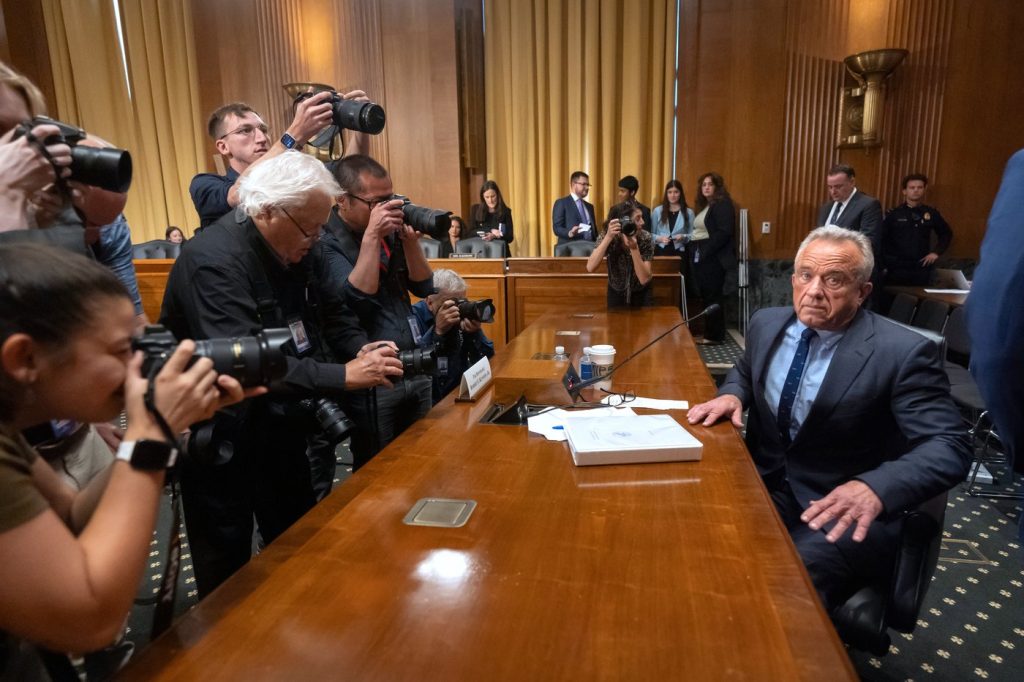In a striking development in Washington, members of Robert F. Kennedy Jr.'s family are publicly demanding his resignation from the position of Secretary of Health and Human Services. This call for his departure follows a contentious congressional hearing where Kennedy faced bipartisan scrutiny regarding his controversial leadership of federal health agencies. The hearing, which spanned three hours, required Kennedy to justify his recent actions, which include attempting to retract COVID-19 vaccine recommendations and dismissing high-ranking officials at the Centers for Disease Control and Prevention (CDC).
On Friday, Kennedy's sister, Kerry Kennedy, and his nephew, Joseph P. Kennedy III, issued harsh statements criticizing his actions and urging him to vacate his role. Joseph P. Kennedy III described his uncle as a "threat to the health and wellbeing of every American," emphasizing that his decisions have detrimental effects that impact everyone. Similarly, Kerry Kennedy expressed her concerns, stating that "medical decisions belong in the hands of trained and licensed professionals, not incompetent and misguided leadership."
This isn't the first instance of familial discontent regarding Robert F. Kennedy Jr.'s actions. Several relatives previously opposed his presidential campaign and wrote to lawmakers earlier this year, urging them to reject his nomination as Trump's health secretary. They expressed concerns about his views on vaccines, which they believed were disqualifying.
Robert F. Kennedy Jr., a long-time proponent of the anti-vaccine movement, has spent the past seven months implementing a transformative agenda within America's public health system. His radical changes have led to thousands of layoffs and significant modifications to vaccine guidelines, alarming medical groups and health officials, especially in Democratic-led states. In response to Kennedy's moves, some states have begun developing their own vaccination advice that diverges from national recommendations.
These decisions, many of which seem to contradict promises made during his confirmation hearings, have sparked great concern among health professionals and advocacy groups. The fallout from the hearing and the subsequent statements from his family highlight a growing divide within the Kennedy family regarding public health and policy issues. As tensions rise around Kennedy's leadership, his controversial approach to health policy is under intense scrutiny from a wide array of stakeholders, reflecting the challenges he faces in aligning his agenda with the expectations within the public health community.
With the Biden administration's approach to public health starkly contrasting Kennedy's policies, the ongoing situation presents a critical moment for American health governance. The implications of Kennedy's changes could resonate far beyond his tenure, prompting widespread reevaluation of health strategies and public trust in government health agencies.












